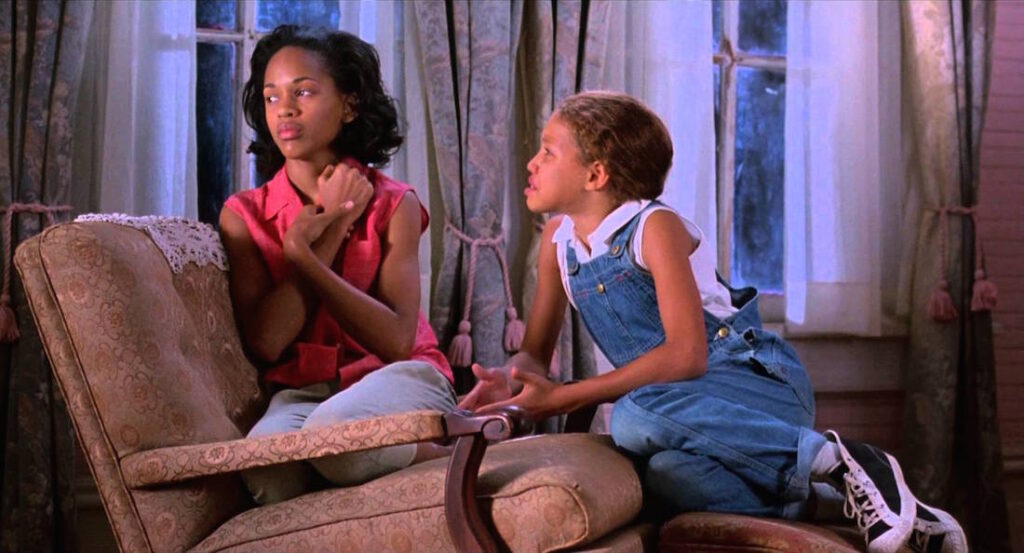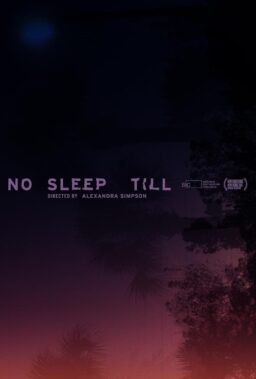On Friday night, Kasi Lemmons presented a director’s cut of her film “Eve’s Bayou,” which Roger named the best film of 1997. Speaking to a full house, Chaz said that Roger had always wanted this movie to come to Ebertfest, having been one of his favorites for so long. The feeling was mutual, as when Lemmons took the stage she wanted to make it clear how important Roger was to her life. “Roger made my career,” she said. She has his review framed in her house, but cannot read it all the way through without getting emotional. “This man told everyone to go see my movie,” she said with a great deal of pride. Roger’s instructions carried through time, as the Virginia Theatre was full of people who had seen it before, or were coming to it for the first time in a full house. Almost twenty years later, the man was still getting people to see the movie.
Before the film, the Ebertfest audience was shown a video of Roger praising the movie when it had just come out on VHS as one of the year’s best. While recommending it, he made a comparison that stuck with me throughout seeing “Eve’s Bayou” a second time, that it’s like Ingmar Bergman’s autobiographical films. Indeed, Lemmons’ film has that qualit:, the sense of magic in “Fanny & Alexander,” and of youthful innocence, especially while trying to understand the adults in the room.
But Lemmons’ movie also has its own flavor, with a great look and a storybook feel to it, weaving a tale from various perspectives about a family; it has both grave moments and youthful reprises. The cast is top-to-bottom phenomenal, including Jurnee Smollett, Meagan Good, Lynn Whitfield, Debbi Morgan and Samuel L. Jackson. Smollett and Good offer very emotional performances that make one wonder how Lemmons was able to achieve such a delicate dramatic balance with young actors. Smollett especially injects a sense of attitude into the aforementioned Bergman-esque aesthetic, especially in scenes where she tries to hold her own in the hierarchy of age and gender, of which her father is at the very top, her sister is below him, and Eve’s mother is below Eve.
Watching the film again, wiser by even just a year, I was so impressed by how full “Eve’s Bayou” is in terms of its experience, character and the atmosphere it creates. It is ambitious and eloquent, touching upon age, life, death, youth, sex, family and so much more within a story that starts with the perspective of someone trying to understand the world. It has those life-changing moments of discovery, of how being adult means that you don’t know the answers, but pretend to the children that you do.
Seeing the film in the Virginia Theatre and in a wonderfully preserved 35mm print, I was struck by the wonderful blues and whites throughout, which give a type of status to a family that lives in a home with four bathrooms, a stark contrast to the browns and greens of the immaculate bayou Louisiana setting. It has an ethereal effect, as matched with the way cinematographer Amy Vincent uses daylight for shots of characters passing over swamps in bridges, or running around outside.
And of course, though I knew it was coming, I was still in awe of a brilliant sequence involving two characters talking, while looking in a mirror—only for one of to pass into the mirror and into the memory itself. Lemmons explained the type of zoom lenses that she used for such an effect, but logistics can’t put this practical piece of magic into perspective. It’s one of many pieces that are so vivid of the type of storytelling hat Lemmons was able to accomplish with just her first film.
After the film’s final image, an everlasting wide shot of the two girls standing between two bodies of water with an incredible sunset, Lemmons was met with a standing ovation. A Q&A with Lemmons was then moderated by Nell Minow, Shawn Edwards and Gil Robertson. It took full advantage of one of Ebertfest’s great qualities: that because the Q&As often take place long after release, the talent speaks candidly with a welcoming audience. When filmmakers talk about their projects here, it doesn’t come with the sense of promotion; it is far more intimate than that.
As had likely been on everyone’s minds during the presentation, Lemmons clarified how the director’s cut was different. The changes are distinct to the film’s entire philosophy: an entire character was taken out from the story, a physically disabled mute that lives in the house named Uncle Tommy. A financier wanted him out of the movie, and though she likes the theatrical cut of the film, Lemmons said it was an emotional move at the time. His part of the film was important to her, as the character was inspired by her great uncle, even though the movie isn’t directly autobiographical. “It said something to me about black families,” she stated. Lemmons also explained the process that they went through to remove the character from the shots, using CGI. With a bit of a laugh, Lemmons shared that the post-production crew even made t-shirts with an empty wheelchair on them that said, “Where’s Tommy?”
Lemmons also shared how “Eve's Bayou” finally came to be, saying that she shopped it for “two years and took about a hundred meetings, meaning I went through the whole town twice.” Though people were interested in the story, no one was really budging on the movie.” The answer came from a producer who had made the “Leprechaun” movies, but wanted to start doing art films. “Eve’s Bayou” started filming long after, even though the process meant that Meagan Good, originally cast as Eve, now had to play a Cesily—Jurnee Smollett was found just in the nick of time “while we were building sets, I didn’t have my Eve,” shared Lemmons.
The saga behind the film coming together brought up the question of modern opportunities for female directors, of which Lemmons was encouraging. “I’m happy to say there are more and more. There was a moment in time when I was a statistics, but I think that now there are more women making films.” She expressed that she didn’t let that kind of talk get to her when making “Eve’s Bayou,” saying, “For many years, I didn’t think about it at all. If I had thought about it, I wouldn’t have gotten out of bed. She added, “I thought Eve’s Bayou was the end. ‘This is what I have to do and I am going to drop the mic and I don’t have anything else to prove. And then I kind of got the bug.”












